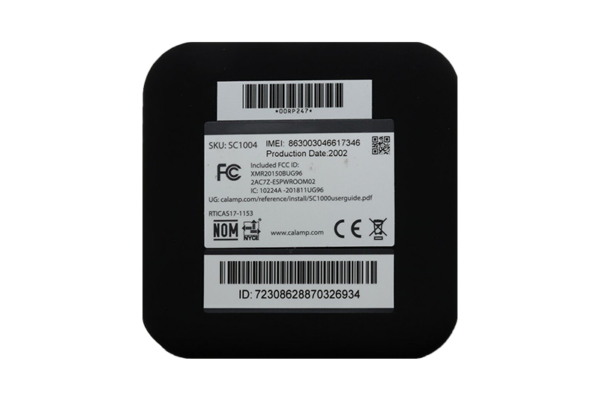Certification in Mexico and Latin America
Several international entities conduct standardization tests for GPS device certification to ensure that trackers meet safety and operation standards. These organizations give their approval and grant certified devices their distinctive seal as a guarantee of quality and durability.
Although most countries approve equivalents or use the international standards established by the United States, Canada, and the European Union, each country may require mandatory or voluntary standards depending on the type of device to be imported and marketed.
Find out more about some of the organizations in Mexico and Latin America that manufacturers take as a reference to certify their equipment.
For more information, please contact the relevant organizations.
Entity | Key points | |||
|---|---|---|---|---|
Mexico | ||||
IFT (Instituto Federal de telecomunicaciones) Federal Telecommunications Institute | IFT regulates, promotes, and monitors the use of radio spectrums, networks, and the provision of public broadcasting and telecommunications services. Click here for the current technical dispositions. | |||
Dirección General de Normas - Secretaría de economía General Direction for Norms - Economy Ministry | Responsible for establishing the so-called Mexican Official Standards (NOM), or the minimum quality standards for products and services. These are offered to the inhabitants and through the Mexican Standards (NMX) determines the quality of the products and services in question, particularly to protect and guide consumers. Click here for the NOM catalog. | |||
NYCE (Normalización y Certificación) Normalization and Certification | A private, national organization for the standardization and evaluation of Official Mexican Standards (NOM) and Mexican Standards (NMX) in the Electronics, Telecommunications, and Information Technologies industry. Click here for the NYCE standards catalog. | |||
Colombia | ||||
ICONTEC (Instituto Colombiano de Normas Técnicas y Certificación) Colombian Institute of Technical Standards and Certification | The Colombian Institute of Technical Standards and Certification is the National Standardization Agency of Colombia. Its work includes the reproduction of technical standards and certification of quality standards for companies and professional activities. Click here for the ICONTEC technical norms catalog. | |||
Peru | ||||
Ministerio de transportes y comunicaciones del Perú Peruvian Communications and Transport Ministry | Government body that seeks to achieve rational territorial management linked to the areas of resources, production, markets, and populated centers through the regulation, promotion, implementation, and monitoring of transport and communications infrastructure. | |||
INACAL (Instituto Nacional de Calidad) National Quality Institute | The National Quality Institute is a specialized technical public body attached to the Ministry of Production of Peru. Its main objective is the standardization, accreditation, and metrology of the norms governing the subjects of various market sectors to certify the quality of local products in order to conform them to international standards and promote their export. Click here for the Peruvian norms catalog. | |||
Chile | ||||
Ministerio de Economía, Fomento y Turismo Ministry of Economy, Development and Tourism | Government agency responsible for promoting competitiveness, productivity, and modernization throughout the country's productive scheme, both in the public and private sectors, as well as in large, medium, small, and micro enterprises. Click here for the laws and decrees library from the National Congress of Chile. | |||
INN (Instituto Nacional de Estandarización) National Institute for Standardization | The National Institute for Standardization (INN) is a quality infrastructure technical body responsible for developing national technical standards to ensure traceability of measurements in the country (metrology) and conformity assessment activities (certification, testing, and inspection) duly accredited by a competent body (accreditation). Click here for the Chilean norms catalog. | |||
Brazil | ||||
Anatel (Asociación Nacional de Telecomunicaciones) National Telecommunications Agency | Anatel's task is to regulate, certify, and standardize telecommunications to guarantee to the consumers that products respect standards of quality and safety, as well as the regulated technical functionalities that aim at the efficient and rational use of the radioelectric spectrum, electromagnetic compatibility and non-aggression to the environment. Click here for Anatel certified devices. | |||
OCD (Organismos de Certificación Designados) Designated Certification Body | The OCD is a Designated Certification Body authorized to issue certifications in Brazil endorsed by Anatel. Click here for the Brazilian OCDs directory. | |||
GPS devices certification in Mexico and LATAM
After certification, a product may need to display certain agencies’ markings or certificate ID on the packaging, manual, and device itself. This ensures that any potential buyer knows exactly which certifications a device might have. Users can also access the corresponding databases, if available, and search by ID number for additional product information such as test reports, frequency bands, and applicant details.

Cellular network compliance
In addition to the various national and international bodies that issue certifications, wireless cellular and data providers may also certify devices for use on their networks. These are generally optional, and are only required if a company plans to operate solely with a specific provider’s network.
SIM/operators
Since most trackers use a universal SIM card, certification isn’t an issue. Many of the businesses that provide universal SIMs also have deals to access cell towers owned by carriers for roaming and additional capacity. However, if a device has a SIM card from a specific carrier, like AT&T or T-Mobile, then the tracker needs to be certified to operate on its network.
Some alliances between manufacturers and carriers “lock” the devices to only operate with their SIM. If you want to use this equipment with another operator, you would have to consult the corresponding process to “unlock” it.
Common carriers in LATAM
Telcel
AT&T
Movistar (Telefónica)
Claro
Entel
Vivo
Tim
